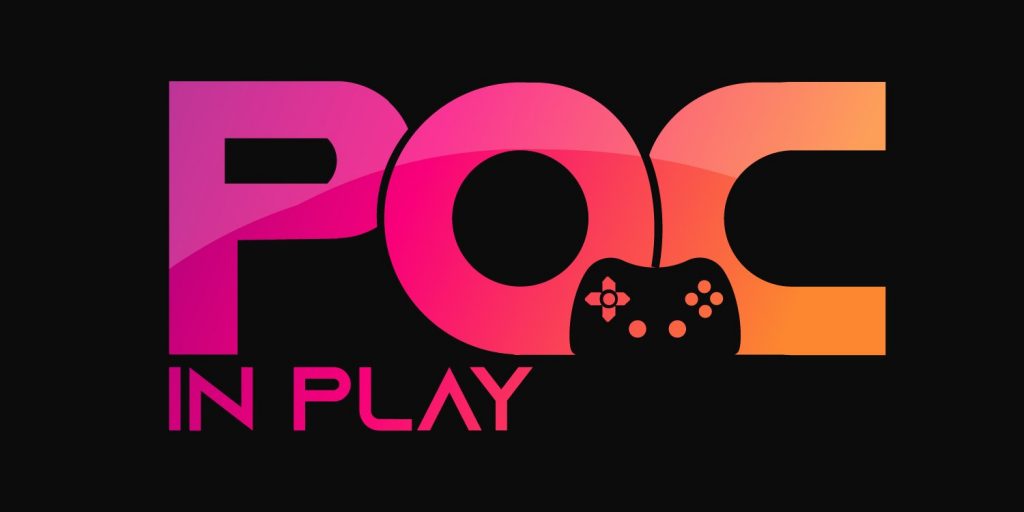
We had a chat to Adam Campbell, product manager for Azoomee and founder of PoC In Play – a racial equity & inclusion movement aiming to address the lack of representation & inclusion of People of Colour in the UK videogames industry.
Quick bio on you and your role!
I am Product Manager at Azoomee. In this role, I’m in charge of steering the company feature roadmap along with the day to day management of the development team of a gaming and video app for kids.
How did you get into this career? Did you always have a passion for gaming?
I’ve always had a passion for gaming from a young age but it was actually around the age of 11, playing on the Dreamcast when I finally realised it was an industry I wanted to be a part of!
I was taken back by the fine mixture of art and science that games comprised of.
My first step was educational, doing a Computer Science & Games Technology course at university.
During this time, I had my first two roles in games, one at Jagex in community management, then SEGA (fulfilling a special goal at the time) as a QA tester.
I knew industry experience would give me an advantage so I worked really hard to get my foot in the door before leaving uni.
Following that, I went on to do a number of things in the sector mostly around production and product management roles.
Was there a single point in your career that spurred the decision to start PoC in Play?
I first started to get involved in diversity initiatives around 2016. My main motivation for POC in Play was to establish something a little different to anything out there, where myself and a truly diverse founding team could establish a roadmap to initiatives we expect to really drive representation and inclusion in this industry, calling on our industry experience, backgrounds and connections.
POC in Play launched at the beginning of this year and I’ve now been in the industry for more than a decade, so a perfect celebration is to give something back.

How important do you consider inclusion and representation to be in an industry like this?
Absolutely essential.
For starters, the audiences we serve in games and the wider entertainment industry are very diverse and would certainly look different on the whole to many of the creators if you pictured them side by side.
Let’s reflect more of the audience in the media we create. Include more diverse people in these stories and the creation process, and we’ll see more authentic representation and more interesting stories born out of new ideas.
When we have more diverse creators included, we create more role models for those who could potentially work in the industry from young kids to seasoned professionals in other industries.
On top of that, if you’re able to attract more talent from more corners of society, this can help address the skills shortage the industry often speaks about. So we’re adding another strong economic argument into the equation. There are no downsides.
What would be your advice for anyone starting out and looking for a role in the gaming industry?
My first bit of advice would be to make use of social media and find your community. “Games Dev” twitter is a very rich space where you’ll find a large portion of the industry interacting. It’s not a bad idea to reach out to people doing the very role you would like to do yourself!
Social media includes LinkedIn, which is an incredible place to find roles, connections or even just the who’s who of the industry and studios.
You also have the opportunity to engage with organisations like us at POC in Play, where we’re looking at the specific issue of underrepresented minorities getting into industry and we actively provide access to spaces in studios through meetups and events.
Speak to game-specific video games recruiters. Though recruiters are not the only way to get a job, we have a number of organisations specifically catered towards getting people roles in the industry.
Games studios increasingly have internal recruiters too, so it’s a good idea to find out who they are and ask for advice on getting roles for those studios. Their advice can be used however you choose to apply for roles.
My third bit of advice is to be open-minded and flexible. Roles in games are not just programming and 3D modelling, any role you can find in another tech or entertainment field will likely have an equivalent in games. These also include roles that are essential to successful businesses but not always mentioned such as HR, legal, business intelligence and marketing.
Speaking on flexibility, games roles are not just restricted to games studios. A good example would be Azoomee which is as much a TV on-demand service as it is a gaming one, but clearly both entertainment fields intersect in this case and there are many other examples out there.
What are you playing at the moment?
My go-to games for a quick session are Mario Kart 8 and Smash Bros on Switch.
But I’m currently making my way through Red Dead Redemption 2. Took me a while to get back into after a few distractions but I really enjoy being lost in the world they’ve created.![]()
